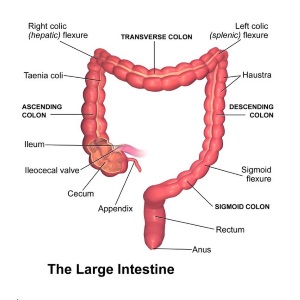The colons of African Americans and people of European descent age differently, new research reveals, which may help explain racial disparities in colorectal cancer. One side of the colon ages biologically faster than the other in both African Americans (the right side) and people of European descent (the left side), University of Virginia researchers Dr. Li Li and Graham Casey found.
In African Americans, however, the right side ages significantly faster, explaining why African Americans are more likely to develop cancerous lesions on the right side and why they are more likely to suffer colorectal cancer at a younger age, the researchers say.
the first to show that the right and left side of the colon actually age differently.
The researchers made this determination by looking at the DNA in colon tissue, and the “epigenetic” changes that come with age. These epigenetic changes are not alterations to the genes, but changes that affect how the genes work and how well they can do their jobs.
The scientists found that the right side of the colon in most African Americans had suffered a unique pattern of “hypermethylation,” affecting gene expression. It was, in essence, like the right side was old beyond its years. This, the researchers believe, could contribute to African Americans’ increased cancer risk and could explain why they are more likely to develop cancerous lesions on the right side.
The research could also explain why younger people of European descent are more likely to develop lesions on the left side – the side that tends to age faster in that group.
“These findings highlight the importance of colon sidedness to biology of colorectal cancer,” Casey said. “The fact that the colon biology of people of African and European ancestry differ further highlights the critical importance of more research involving participation of people of African descent.”
- See “Strange Colon Discovery Explains Racial Disparities in Colorectal Cancer” by Josh Barney on the University of Virginia news website (January 21, 2021)
- See the abstract of the scientific paper “Racial Disparities in Epigenetic Aging of the Right vs Left Colon” by Matthew Devall et al.




